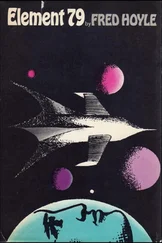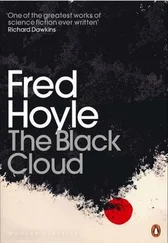She could act the part without difficulty: she looked so honest, so forthright, so much a team member. She had only to sit back and listen and learn. It was the people she met who discomforted her; they had their own world and their own values. Who was she to judge them or be party to their judging? When Harries nodded and sauntered away to do what was needed, she despised both him and herself.
The Professor left soon afterwards and handed her over to John Fleming.
“Perhaps you’d drop her at the Lion when you go back to Bouldershaw. She’s staying there.”
They went out on to the steps to see the old man off.
“He is rather sweet,” said Judy.
Fleming grunted. “Tough as old nails.”
He took a hip-flask from his pocket and drank out of it. Then he handed it to her. When she refused he took another swig himself, and she watched him standing in the light of the porch, his head thrown back, his Adam’s apple working up and down as he gulped. There was something desperately keyed-up about him; perhaps, as Reinhart had said, they had run him ragged. But there was something else besides—a feeling of a dynamo permanently charging inside him.
“Play bowls?” He seemed to have forgotten his earlier indifference to her. Perhaps the drink. “There’s an alley down at Bouldershaw. Come and join our rustic sports.”
She hesitated.
“Oh come along now! I’m not going to leave you at the mercy of these mad astronomers.”
“Aren’t you an astronomer?”
“Do you mind! Cryogenics, computers, that’s really my stuff. Not this airy-fairy nonsense.”
They walked across to the small concrete apron where his car was parked. A red beacon light shone on top of the telescope, and in the dark sky behind it stars began to show. Some could be seen through the tall arches of the pylons, as though they had already been netted by man. When they reached the car, Fleming looked back and up.
“I’ve an idea,” he said, and his voice was quieter, quite gentle and no longer aggressive. “I’ve an idea we’ve got to the breakaway stage in the physical sciences.”
He started to unclip the tonneau cover from his car, a small open sports, while she moved round to the other side.
“Let me help you.”
He hardly seemed to notice.
“Some moment, somewhere along the perimeter of our knowledge, we’re going to go— wham!— clean through. Right out into new territory. And it might be here, on this stuff.” He bundled the tonneau cover in behind the seat. “’Philosophy is written in that vast book which stands forever open before our eyes, I mean the universe.’ Who wrote that?”
“Churchill?”
“Churchill!” He laughed. “Galileo! ‘It is written in mathematical language.’ That’s what Galileo said. Any good for a press hand-out?”
She looked at him, uncertain how to take it. He opened the door for her.
“Let’s go.”
The road dropped down to Lancashire on one side and into Yorkshire on the other. On the Yorkshire side it ran down a long valley, where every few miles a tall old brick mill stood over the river, until they came to the town of Bouldershaw. Fleming drove too fast, and grumbled.
“They get on my wick... Flogging Ministers’ Opening!... The old Prof. sweating on the Honours List; the Ministry bunch all needling and nagging. All it is, really, is a piece of lab equipment. Because it’s big and costs the earth, it becomes public property. I don’t blame the old man. He’s caught up in it. He’s stuck his neck out and he’s got to show results.”
“Well, won’t it?”
“I dunno.”
“I thought it was your equipment.”
“Mine and Dennis Bridger’s.”
“Where is Dr. Bridger?”
“Down at the alley. Waiting for us with a lane booked, I hope. And a flask.”
“You’ve got one flask.”
“What good’s one? They’re dry, these places.”
As they swung down the dark winding road, he started telling her about Bridger and himself. Both had been students at Birmingham University, and research fellows at the Cavendish. Fleming was a theorist, Bridger a practical man, a development mathematician and engineer. Bridger was a career scientist; he was set to make the most he could out of his particular line. Fleming was a pure research man who did not give a damn about anything except the facts. But they both despised the academic system into which they grew up, and they stuck together. Reinhart had winkled them out, several years ago, to work on his new telescope. As he was, perhaps, the most distinguished and respected astro-physicist in the western world, and a born leader of teams and picker of talents, they had gone along with him without hesitation, and he had backed and encouraged and generally fathered them throughout the long and tortuous business of development.
It was easy to see, when Fleming talked, the mutual trust that tied him to the older man, behind his surliness. Bridger, on the other hand, was bored and restless. He had done his part. And they had, as Fleming said without modesty or conceit, given the old boy the most fabulous piece of equipment on earth.
He did not ask about Judy, and she kept quiet. He waited in the bar of the Lion while she went to her room. By the time they reached the bowling alley he was pretty much the worse for wear.
The bowling alley was a converted cinema which stood out in a wash of neon and floodlighting against the dark old mill-town. Its clientele seemed to have come from somewhere other than the cobbled streets. They were mostly young. They wore jeans and soda-jerks’ jackets, crew-cuts, and blouses with slogans on them. It was difficult to imagine them at home in the old terraced houses, the grimy Yorkshire valleys. Their native voices were drowned under a flood of music and the rumble and clatter of bowls and skittles on the wooden planking of the lanes. There were half-a-dozen lanes with ten pins at one end of each and, at the other, a rack of bowls, a scoring table, a bench and a quartet of players. When a bowl pitched down and scored a strike, an automatic gate picked up the skittles again and returned the bowl to the rack at the players’ end. Except in the concentrated, athletic moment of bowling, the players seemed uninterested in the game, lounging around and talking and drinking Coca Cola out of bottles. It was more transatlantic than the cinema had been: as though the American way of life had burst out through the screen and possessed the auditorium. But that, Fleming remarked, was just bloody typical of the way things are generally.
They found Bridger, a narrow, pointed man about Fleming’s age, bowling on a lane with a curvy girl in a vermilion blouse and tight, bright yellow drainpipes. Her bosom and hair were swept up as high as they would go, her face was made up like a ballet dancer’s, and she moved like something in a Hollywood chorus; but when she opened her mouth all Yorkshire came out of it. She bowled with a good deal of muscular skill, and came back and leant on Bridger, sucking a finger.
“Ee, I got a bit o’ skin off.”
“This is Grace.” Bridger seemed slightly ashamed of her. He was prematurely lined and nervous, mousily dressed in dull sports clothes like a post office assistant on Saturday morning. He shook hands tentatively with Judy, and when she said “I’ve heard of you,” he gave her a quick, anxious look.
“Miss Adamson,” said Fleming, pouring some whisky into Bridger’s Coke, “Miss Adamson is our new eager-beaver—lady-beaver—P.R.O.”
“What’s your other name, love?” inquired the girl.
“Judy.”
“You haven’t got a bit of sticking-plaster?”
“Oh, ask at the desk!” said Bridger impatiently.
“One of your team?” Judy asked Fleming.
Читать дальше












